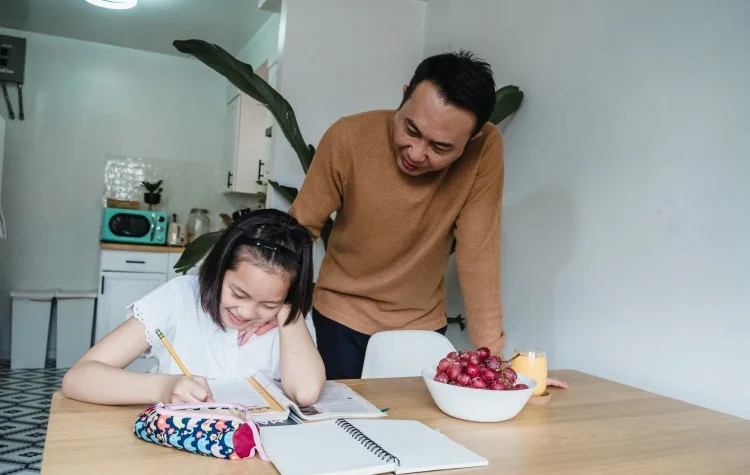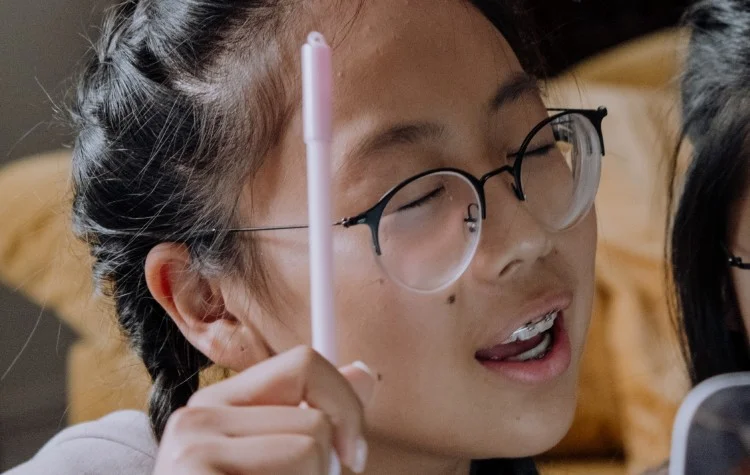When it comes to education, the ultimate aim of parents and teachers is to make children self-sufficient and able to think for themselves. One of the key steps you can take in that direction is to nurture independent learning in children. So, what is independent learning?
Independent learning is the method of learning and pursuing knowledge by own volition and initiative without support from teachers, parents, or other adults. It is a process of inquiry taken upon by the student. It means that students will be able to pursue their path and research and realise knowledge on their own.
Why should Independent learning be encouraged?
“You cannot help people permanently by doing for them, what they could and should do for themselves.”
― Abraham Lincoln
The best way to help someone is to enable them to do things on their own. When you are doing it for them, you are just making them dependent on you and is not a good practice. Independent learning can help out your children in a lot of ways:
- Helps children prepare for unexpected situations and circumstances.
- Helps develop self-confidence.
- Helps them identify their strengths and weaknesses and work with them.
- Helps them prepare for the demanding future they will have to face once they become adults
- Increases imagination and creativity.
- Improves time management skills and efficiency.
- Makes children develop a sense of self-sufficiency and independence.
- Helps form new ideas and thoughts that may turn into a discovery or invention.
- Helps them develop problem-solving skills and better intuition.
- Improves reading and writing skills
What can you do to encourage independent learning in children?
Teach your children how to learn

The way one learns is vital. For each person, the ideal method can vary. But even then, there is a common process everyone has to follow. The process goes like this:
- Think about what you are learning
- Think about why you are learning it
- Work on the basics
- Try to make connections between what you study
The problem with most students is that they only focus on the first step. You have to give priority to the other steps too. Try it, and you will see how your learning process improves. Once you get your children started on this, they will soon find themselves being able to understand complex and otherwise hard-to-learn topics all on their own.
Instil curiosity in them

Children are curious by nature. But we often trample on that at home and school. Adults get annoyed and angry at children when they ask questions. Schools, instead of fostering this valuable trait, often destroy it. We should encourage them and even try to instil curiosity in them. Tell them things that will pique their interest and let them then research it on their own. Ask them open-ended questions and tell them to find the answers. Thought-provoking prompts can be given to them to ponder when they are free. Puzzles, riddles and games -all can help you in this regard.
Show them how to find answers to their questions
Letting children be independent learners doesn’t mean that you leave them on their own to do whatever. Initially, you will have to support and guide them. Show your children how they can look for the answers they need. Show them how to get books from the library, show them how to research on the internet, and filter out the things they need. Teach them whom to ask and how to ask when they need answers to specific questions.
Encourage questions and Create a Positive learning environment
Do not get irritated or grumpy when children keep asking you questions. Answer as much as you can and if you are not sure, guide them to where they will be able to get the answers.

Try to ensure a positive and enabling learning environment at home and school. Inquisitiveness and drive for knowledge should be encouraged, and appreciation should be given when they succeed in their tasks. When they are in a rut, help them out by pointing them in the right direction.
Encourage experimenting
Instead of accepting things for what they are, try to encourage your children to question why they are so and experiment with them. If your children are too young to do it, help them out. Always encourage them to understand how everything works and what will happen if they change different aspects of them.
Help children develop critical reading skills.
Reading is not a simple process as everyone thinks. It has various levels and aspects. Only those familiar with these skills and know how to make use of them can become efficient learners. In this age of information where an infinite amount of information is available at the click of a button, you need to have the skill to identify what is relevant and what is not. Teach your children to actively filter and think about what they are learning instead of being passive readers.
Check out our blog on “Help, my child doesn’t want to read!” in case you find it difficult to get your children to read books.
We hope you try out the above-mentioned pointers and find them fruitful in nurturing independent learning in children. We wish you all the best! 🙂
Exam Smart Tips
Exam Smart Tip #1 – How to Encourage Our Kids to Speak Better?
Exam Smart Tip #2 – How to avoid carelessness?
Exam Smart Tip #3 – Establishing Routines!
Exam Smart Tip #4 – Let’s Read Carefully!
Exam Smart Tip #5 – Beating the Exam Fever!
Exam Smart Tip #6 – How to Eat Right for the Exams?
Exam Smart Tip #7 – How to Avoid a Meltdown?
Exam Smart Tip #8 – Taking Stress out of Tests
Who We Are
Mission statement – “Empower every student to achieve full potential”
88tuition Pte Ltd offers the best PSLE Tuition Singapore for children looking to ace the PSLE exam. With effective learning materials and high-quality explanatory videos by experienced trainers, children are provided with the best online PSLE tuition.
With the basics learnt well, children will be able to grasp advanced concepts easily. Looking for the best PSLE math tuition, PSLE Science tuition and PSLE English tuition in Singapore? 88tuition has got you covered. The online training videos and assessments are designed in a way that children are made to enjoy the learning process.
UEN 201817310C
271 Bukit Timah Road; #03-08; Singapore 259708



